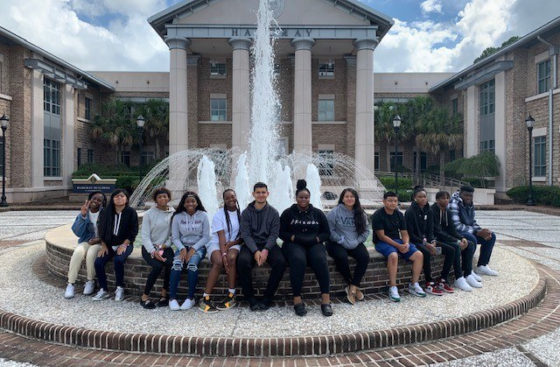Impact
Making Good Choices
August 22, 2019LowCountry Alliance for Healthy Youth provides educational programs to help local youth make good choices and avoid the tragedies that can come from alcohol and drug use.
In 2012 a series of alcohol-related tragedies precipitated the launch of LowCountry Alliance for Healthy Youth (LCAHY), a coalition addressing youth substance use/abuse while promoting positive choices and healthy lifestyles. After several years of growth, LCAHY applied for – and received – a federal grant from the Drug-Free Communities (DFC) Support Program.
LCAHY had already established a fund with Community Foundation of the Lowcountry, so when it came time to apply for the grant – and identify the fiscal agent the grant required – the Community Foundation was the obvious choice. The Community Foundation has the unique ability to act as fiscal agent for many local efforts.
Anyone who’s familiar with federal grants understands the complexities and overwhelming requirements of administering them. Dr. Loretta Novince, a developmental psychologist, and Wendy Cummings, a nurse and parent of five children, have worked diligently to ensure the grant’s i’s are dotted and t’s are crossed. “There are so many checks and balances with a grant like this,” Cummings says. “That’s one of the ways the Community Foundation has helped us; they ensure we stay on track.”
LCAHY is one of more than 730 coalitions across the country funded by the Drug-Free Communities (DFC) Support Program. The grant has allowed the coalition to expand their educational programs while encouraging unification and collaboration within the community. Terms of the grant require the coalition to include representatives from 12 distinct community sectors; each sector must actively participate in fulfilling the group’s mission.
And the urgency of this mission can’t be overstated. “Ninety percent of adults who are addicted to alcohol and drugs began use during adolescence,” Novince says. The most critical age range is 14 to 16, an age when addiction happens much more easily. In addition to targeting underage use of alcohol and drugs, LCAHY also focuses on tobacco and vaping, along with prescription drug misuse.
Cummings thinks the “shining jewel” of their efforts is the Teens for Healthy Youth initiative. Students from almost every area high school participate. The Teens for Healthy Youth is not just a “just say no” group, Cummings says. “They promote positive teen health across the board, addressing issues like stress, bullying and depression. They’re successful because kids listen to each other, versus listening to an adult.”
Other LCAHY initiatives include educating the service and hospitality industries on ID checks, a social media campaign, a year-round prescription drug take back program and annual community forums like a faith-based breakfast and the Healthy Youth Leadership Conference.
“The adolescent period is full of opportunities and promise,” Novince says. “But it’s also full of vulnerabilities.” LCAHY is working to make sure young people are given the support and education they need to make healthy choices. And the Community Foundation is supporting LCAHY by offering guidance and serving as its fiscal agent.
To learn about LCAHY and its many initiatives, visit: www.lcahealthyyouth.com.


